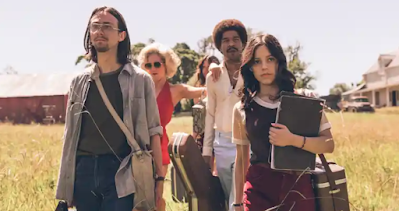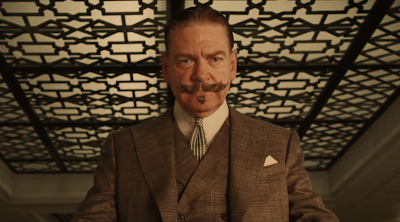Well, as a paid job at least. Much as I like being someone broadly across everything in cinemas - and I still went to a lot of movies in the cinema this year - this was the year when the financial side of things stopped adding up, even when the actual screening itself was free.
(I live roughly 60-90 minutes travel time from where most free screenings are being held. When they're held during an evening - which almost all major mainstream releases are now; the days of daytime critic screenings are over - there's no public transport for at least one of the three legs of my journey. In which case the taxi fare alone is roughly what it costs to purchase an in-season movie ticket)
That means this years best and worst list is based on a slightly smaller base than usual. Triangle of Sadness and Aftersun are two films I was hoping to have seen by now; After Yang has been around for so long I have nobody to blame there but myself. As for 2023, Tar looks good, as does that Jason Statham spy movie with the overly long title - not a problem anyone will be having with Gerard Butler's upcoming Plane.
On the upside, the world of streaming has made a lot of films available that we'd be lucky to find otherwise in Australia: your views on Accident Man: Hitman's Holiday may diverge from mine, but having it as a viewing option is most definitely a good thing.
It's also often the only way to see any Australian films that aren't extremely arthouse or aimed at ladies who lunch, even if that just leaves you watching Russell Crowe's Poker Face.
So here's my list of the good, the bad, and the better than average. I've limited this to films that were released / made generally available in Australia in 2022, mostly to prevent this from just being a list of Italian crime movies from the 1970s. Though if you like that kind of thing, 70s Australian heist movie Money Movers finally made it to blu-ray this year and is well worth a look. Enough!
A top ten, in no particular order
*The Banshees of Inisherin
*The Retaliators
*Athena
*Barbarian
*Carter
*Nope
*Confess Fletch
*A Violent Man
*The Batman
*The Drover's Wife
Worth a mention:
*Belle
*Orphan: First Kill
*Accident Man: Hitman's Holiday
*Top Gun: Maverick
*Emily the Criminal
*Kimi
*Avatar: The Way of Water
*The Unbearable Weight of Massive Talent
*Beavis and Butt-Head do the Universe
*Loveland
Perhaps avoid:
*Wog Boys Forever
*Elvis
*Wyrmwood: Apocalypse
*Clerks 3
*Day Shift
*Ghostbusters: Afterlife
*Moonfall
*Fantastic Beasts: The Boredom of Dumbledore
*Ticket to Paradise
*Don't Worry Darling
- Anthony Morris




















